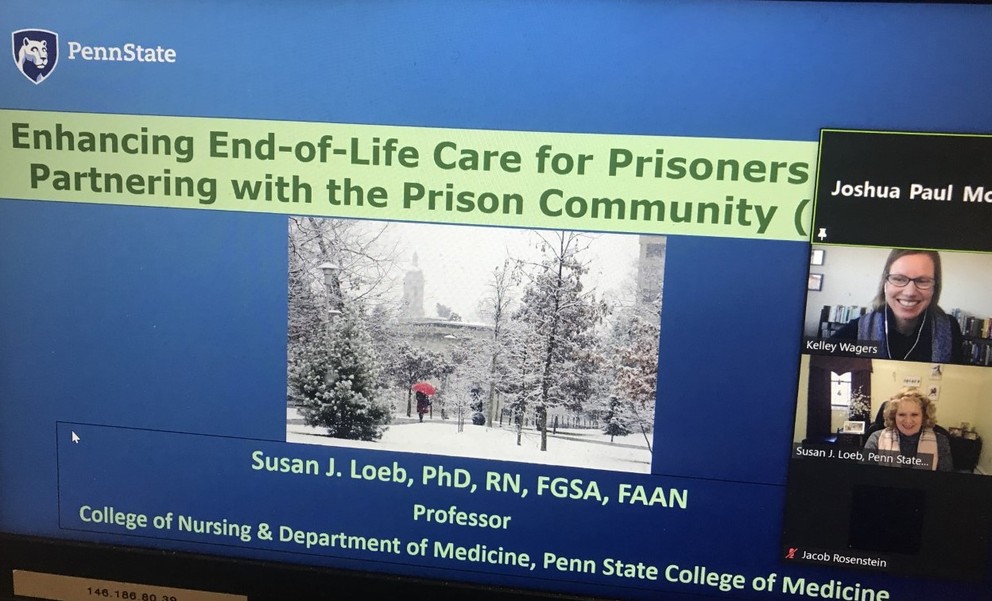Integrative course examines importance of empathy in health communication

Meaningful, compassionate communication can be challenging under the most mundane of circumstances. And, as many know all too well, it can be especially difficult during a health crisis.
Mindful of that disconnect, Penn State Worthington Scranton Associate Professor of English Kelley Wagers set out to create an innovative course that gives students across the academic spectrum the opportunity to explore and practice these vital exchanges.
During the fall semester Wagers taught, for the second time, Communicating Care, an integrative (multidisciplinary) general-education course she designed with input from a medical ethics expert at Penn State College of Medicine and some campus colleagues.
Essentially, Communicating Care is a medical humanities course, perfect for those going into nursing or another medical field, but also for anyone who wants to become a more effective and empathetic communicator, said Wagers.
A key participant in the course was Susan J. Loeb, PhD, RN, professor of nursing at Penn State College of Nursing and professor of medicine at the College of Medicine.
Wagers first conceived the idea for Communicating Care in 2017, when she received a seed grant to bring an integrated general ed course to the campus. Wagers decided to focus on the medical humanities, with a specific interest in empathetic communication.
With the grant money, Wagers was able to enlist the expertise of Rebecca Volpe, PhD, an associate professor in Penn State College of Medicine’s Humanities department. From there, she sought further assistance from two faculty members at Penn State Scranton — James Hart, lecturer in communication arts & sciences, and Raymond Petren, associate professor of human development and family studies.
“Becky was involved in every level of the course design and Ray and Jim both asked great, specific questions and had really good resources and ideas,” Wagers said. “For me personally, the course has been a great lesson in collaboration. I find myself asking more and more people more and more often, ‘What do you know about this?’ or How would someone in your field get at this question?'”
Learn more about the class in this Penn State News story
If you're having trouble accessing this content, or would like it in another format, please email Penn State Health Marketing & Communications.
